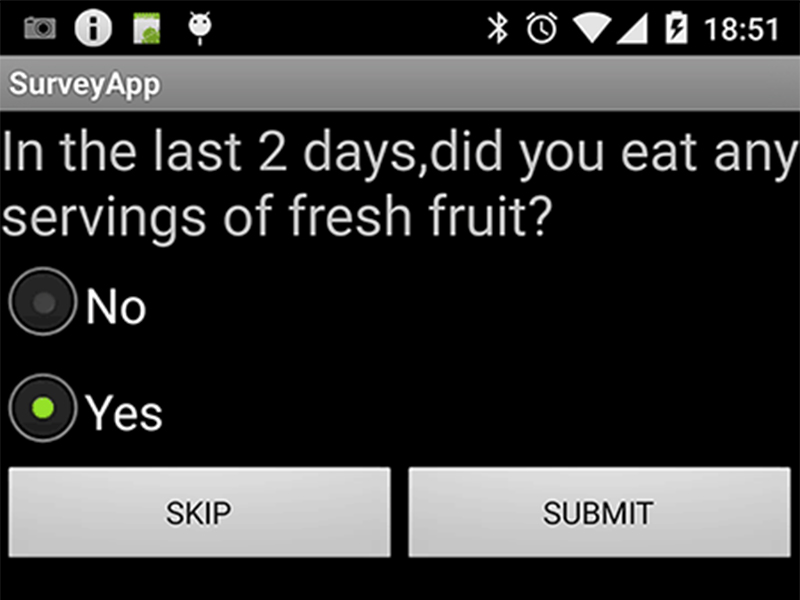
Exploring New Technologies to Support Investigation of Foodborne Disease
University of Saskatchewan (U of S) students will soon have the opportunity to be involved in a research project funded by the Saskatchewan Health Research Foundation (SHRF), which will use new technology to study foodborne illness.
Traditionally, studies tracking the source of foodborne outbreaks involved telephone interviews several days after getting sick and as a result, it has sometimes been difficult to identify the source of the outbreak. This innovative project will evaluate a new technology for gathering data on what people eat and when gastrointestinal illness occurs. Students will be asked to use an Android/smartphone app callediEpi, developed by Dr. Nathaniel Osgood’s and Dr. Kevin Stanley’s team in the U of S Department of Computer Science.
Principal Investigator Dr. Cheryl Waldner from the Western College of Veterinary Medicine is leading this project, alongside co-principal investigator Dr. Nathaniel Osgood. Additional U of S researchers include Dr. Kevin Stanley, Dr. Wanda Martin (College of Nursing), Dr. Juxin Liu (Department of Mathematics and Statistics), Dr. Scott Bell (Department of Geography and Planning) and Dr. Cory Neudorf (Saskatoon Health Region).
Starting this fall, students will be recruited as volunteers to determine the usefulness of the app for foodborne disease surveillance. “Students are a good target population, as most have smartphones and frequently use them for data sharing and communication,” said Dr. Wanda Martin.
Participants will be intensively engaged for a period of 10 days and be asked to report any gastrointestinal symptoms using iEpi. They will also be asked to take photos and answer questions regarding their daily food intake. After two weeks, participants will complete an online survey asking them to recall their food consumption history from day four to 10. Once the data is collected, researchers will compare online survey results with the iEpi data and report on any differences between the two forms of data collection. iEpi data collection will continue for a total of 10 weeks to estimate the occurrence of enteric disease in the participants.
Following the completion of the surveys, the project will be presented to a focus group with public health leaders to share the results and obtain guidance on future priorities. The results of the project will be used in applications to the National Centre of Excellence in One Health and the Collaborative Health Research Program.
Are you a student interested in getting involved in this project? Please contact Dr. Cheryl Waldner (clw708@mail.usask.ca or 306.966.7168) for more information.

